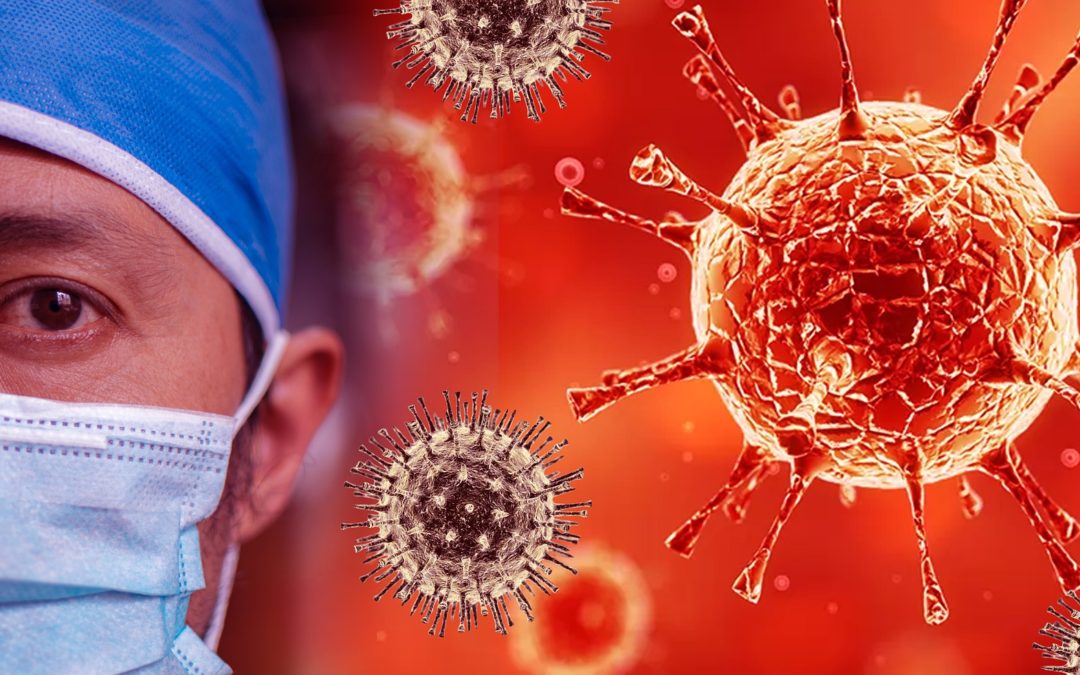What possible benefit could there be in this horrible outbreak of viral illness? COVID-19 has been fraught with fear, heartbreak, and loss, and that’s before the confusion brought on by political dysfunction. Despite that, it’s not all bad.
Let’s look at how COVID is allowing us to re-imagine our lives and to create innovative solutions to some old problems. Everything is on the table – from how we see the doctor, buy medicine, and define essential services. Let’s look at these potential silver linings. Read more from Boston medical marijuana doctor Jordan Tishler below.
Why Do We “Go” to the Doctor’s Office?
There was a time (before me) when the doctor would come to the house to see the patient. Home-visits cemented the relationship between the patient and their clinician. They allowed the doctor a now-rare view into the real-world environment of the patient and the relationships that either supported or hindered the patient’s progress. Our modern lives have made most house-calls socially and financially impractical. Office-based medicine allows the doctor to help as many patients as she can in a day. It provides a friendly but professional atmosphere in which to be seen and to work. It provides a central location in which patients feel comfortable that they can expect quality treatment.
Office-based medicine also loses all the wonderful things about house-calls. And here is one of silver linings: many of the reasons for using an office are no longer necessary. For many fields of Medicine, like Psychiatry, Cannabis Medicine, and even some Primary Care visits, being in the same room just isn’t the only way to have an effective and collaborative visit. A good discussion coupled with careful observation can be very effective and satisfying for both doctor and patient.
The benefits of telemedicine go way beyond decreased risk of COVID. It’s easier for patients not to have to leave home or work for a doctor visit; it enables family members to join when that’s appropriate. Even better, it offers some of the benefits of those old-fashioned home visits. With telemedicine, doctors get to see their patients in their own environments. Healthcare physicians can see where they’re comfortable and what makes them anxious (beyond the doctor’s office setting). Medical marijuana doctors can also see particulars about their home: organization, support, physical and financial roadblocks. Most of all, they can observe in an entirely different manner what their day to day is really like.
For example, Dr. Tishler treats a young woman with advanced breast cancer who is doing well, but has young children about whom she worries. On our last visit, he was able to see her at her kitchen counter, in a warm, homey environment. In the middle of our chat about treating cancer and medical marijuana, her 5 year old son climbed into her lap and said, “I need snuggles Mommy.” Not only was this priceless, but her reaction let me know that she’s doing OK.
Why Medical Cannabis Dispensaries Are Actually Better for Patients Now
Prior to COVID, patients needed to trek to the dispensary and then often got up-sold more medicine and products than they needed. This lead to wasted time and money for the patient, and often lead to treatment failures that could have been avoided.
A long-term solution to this problem would be to regulate that dispensaries and retail cannabis shops (both medical and recreational) not be allowed to give any medical advice. They do not have the expertise and they have major conflicts of interest since they sell products.
Another bright spot of the current crisis has been that dispensaries have moved to systems that employ online ordering and either curb-side pickup or home delivery. In this new, post-COVID approach, patients order without the salesperson’s input, so they are more likely to get what a doctor had recommended. So far, their outcomes appear to be improved.
How Recreational and Medical Cannabis Differs
Since medical cannabis was considered an essential service during COVID-19, many people who were using cannabis medically, but purchasing it recreationally, came to medical attention. As I saw these folk, I was struck by the negative consequences of a system that promotes overuse to patients. Thankfully, I was able to help many of them develop a more effective and safer (and often less costly) regimen.
The strong messaging that patients don’t need doctors or the medical system has the pernicious effect of undermining the legitimacy of medical cannabis treatment. As a result, most people never even consider cannabis medicine, even if it would be the best treatment available to them.
Contact Our Massachusetts Medical Marijuana Doctor Today
COVID has made people think about health care in new ways, emphasizing our need to pay attention to patients and delivery systems. It has reinforced for many that cannabis is a viable medicine and that cannabis medical care is an essential service. This is the message that will mainstream cannabis care.
As we all struggle to make sense of life in this new reality it is essential that we take the opportunity to re-envision our lives as a community. We must dig deep to find the positive in the midst of all this upheaval. Telemedicine, online medication ordering, and renewed focus on providing health care with cannabis are the beginnings of a better system for all, and are some of the silver linings that we’re all craving. If you are looking for a Massachusetts medical marijuana doctor, contact Jordan Tishler today at

